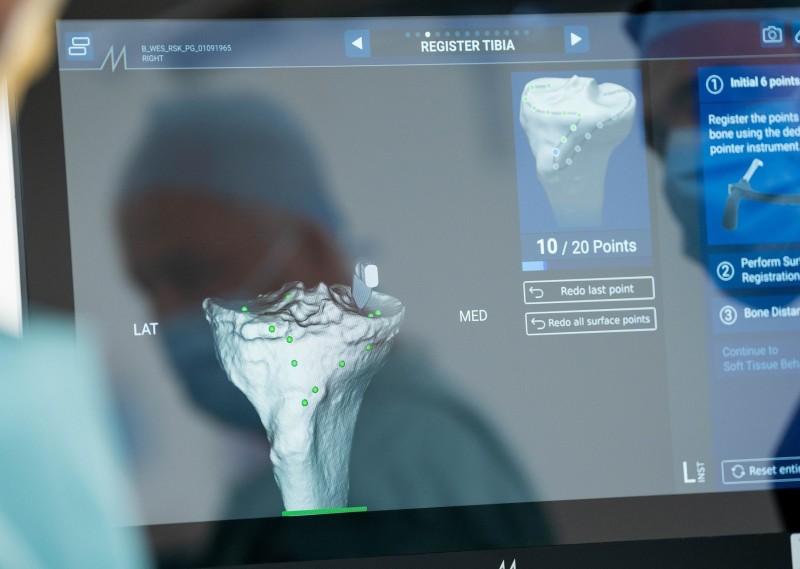Total Knee Replacement Performed With Augmented Reality-Based Imaging Software
Images

The first hospital in London has successfully performed a total knee replacement procedure with the assistance of an augmented reality-based surgical platform that was designed with artificial intelligence and machine learning. Dr Panagiotis Gikas consultant orthopedic hip and knee surgeon at Cleveland Clinic London, led the surgical team during the procedure.
In recent years, augmented reality (AR) has become increasingly beneficial in orthopedic surgery, with significant advantages that equip the operating team with the tools to provide a more personalized approach to patient care.
“Augmented reality gives a visualization of the joint that is more dynamic as it is three-dimensional (3D),” said Dr Gikas. “The advanced technology helps with planning the procedure and allows for the best positioning of the implant for each patient during the procedure. The end-result is tailored to the unique anatomy and specific needs of each patient.”
Prior to the procedure, Dr Gikas used advanced imaging software to visualize the patient’s knee joint in 3D and determine the ideal implant positioning for this patient, based on their specific anatomy. The virtual 3D model of the patient’s knee helps the surgical team evaluate damaged bone and cartilage so they can plan for the surgery and the optimal placement for the implant.
During the procedure, the physician wears a pair of augmented reality glasses to view the patient’s specific knee anatomy in 3D. Two small sensors are attached to the patient’s leg to provide real-time soft tissue feedback, such as the tension of the ligaments. The AR-based platform enables the surgical team to easily adjust, better visualize and determine the proper placement of the implant given the patient’s specific anatomy, which is key to a successful knee replacement procedure.
As a leader in medical innovation, Cleveland Clinic has used augmented reality technology in joint replacement procedures at its main campus in Cleveland, Ohio, especially with shoulder arthroplasty surgery.
Augmented reality is being adapted by Cleveland Clinic research scientists and physicians for use in a wide array of clinical applications, including aortic aneurysm treatment. Cleveland Clinic used augmented reality technology during an extremely complex total face transplant surgery in 2017. AR was also incorporated into liver cancer treatment at Cleveland Clinic.